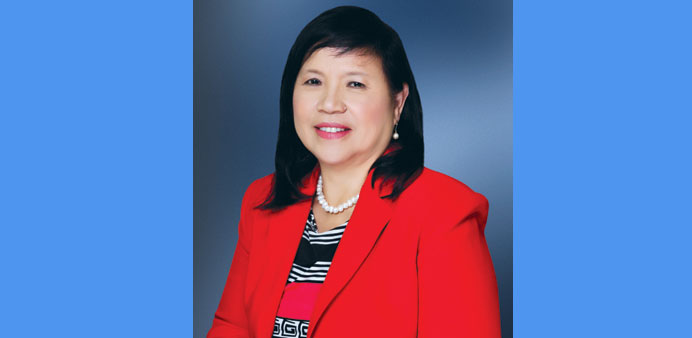By Peter Alagos/Business Reporter
Given the opportunity to establish start-ups in Qatar, some Overseas Filipino Workers (OFWs) here said they prefer to invest in the country’s food industry, a Philippine-based non-government organisation said.
According to Estrella Dizon-Anonuevo, executive director of Atikha Overseas Workers and Communities Initiative Inc (Atikha), investing in the food industry appeals to many OFWs, who consider the more than 200,000 Filipinos in Qatar as a captured market.
Anonuevo was in Qatar recently for the training of trainors of the Pinoy Worldwide Initiative for Investments, Savings, and Entrepreneurship (Pinoy WISE), a platform that educates OFWs in financial literacy and upholding family values.
She said the idea of investing in Qatar’s food industry has been a perennial topic among participants of the Pinoy WISE training, held every month at the Philippine Embassy in Doha.
But Anonuevo also noted that it is advisable for OFWs to pool together their resources to raise the needed capital. “Putting up a business in Qatar would require a lot of money and no single OFW can do that,” Anonuevo told Gulf Times.
This was echoed by Philippine Business Council (PBC) chairman Gregario Loayon, who added that establishing a business in Qatar could be “quite exhaustive” depending on the type of business.
Asked about the key challenges of putting up a business in Qatar, Loayon said, “There really isn’t any choice on this matter as most business ventures will appear to be joint ventures, meaning an expatriate is required to seek a Qatari ‘partner’ or sponsor to be in business.
“If the question is around a real joint venture into a business, such as involving shared capital investment into a business, there is nothing that deters any OFW from doing that. If they have the right business venture to propose and it makes sense to the Qatari investor, they will invest….pursuing a business venture in Qatar is feasible.”
Aside from Qatar, Anonuevo said Atikha assists OFWs to look for other investment opportunities in the Philippines.
“The range of investments that we introduce to OFWs is very varied; we research the character of OFWs of a particular country before we visit them. Our offerings vary depending on the country and the character of OFWs living there,” Anonuevo explained.
According to Anonuevo, the OFW population in Qatar comprises 5% of highly-skilled management and consultants, 25% professionals, and 70% semi-skilled workers.
She said the challenge is how to instil the values of financial literacy on the large population of Qatar-based Filipino semi-skilled workers whose salary range between QR800 to QR1,000 per month.
Speaking to Gulf Times earlier, first secretary and consul Gonaranao Musor said the Philippine Embassy in Qatar emphasises the need for financial management among OFWs “to dissuade them from unnecessary spending.”
“Being an OFW is only a short-term arrangement; there will come a time when the person will retire and he or she must have some form of investment to come back to after retiring from overseas employment,” Musor stressed.

Anonuevo: OFWs need to pool together resources to raise capital.
